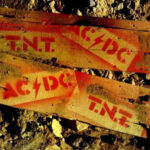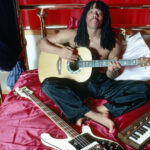In the late 1970s, Europe resonated with powerful anti-war songs, two of which left an indelible mark: “The Band Played Waltzing Matilda” and “The Flowers of the Forest,” also known as “No Man’s Land” or “The Green Fields of France.” These songs, particularly “Waltzing Matilda Song”, were so impactful that a single hearing ensured they would linger in your mind. Throughout northern Europe, amateur and professional musicians alike performed them repeatedly. Ironically, despite their ubiquity, access to the lyrics for “The Band Played Waltzing Matilda” only came later, upon returning to the States and discovering them in Sing Out! magazine.
At the time, the shared authorship of both songs remained a mystery. Both were penned by Eric Bogle, a Scottish singer residing in Australia. During the 1970s, before his debut record, Bogle’s songs, including this moving “waltzing matilda song”, were primarily disseminated through recordings by better-known artists such as Tommy Makem and Liam Clancy, June Tabor, and Priscilla Herdman. This exemplifies the enduring power of oral tradition, thriving even in the age of phonographs and radio, and preceding the internet’s pervasive reach.
An encounter with an album by Bogle himself in Vancouver, Canada, around 1982 or 1983, revealed a surprising facet of the artist: his uproarious humor. Notably, a song satirizing serious folksingers, “You’re a Bloody Rotten Audience (Whilst I am very good),” showcased this comedic side. Bogle seemed acutely aware of the dichotomy between his poignant songwriting and his stage persona. The memory of seeing him perform live remains vivid: a profoundly moving, heartbreaking song met with stunned silence followed by thunderous applause. His reaction, wiping his brow and quipping, “I think I’ll stop writing songs and just hit myself over the head instead,” underscored this contrast.
However, digressions aside, the essence of “waltzing matilda song” lies in its inherent power. It is a stark, unadorned narrative that retains its painful relevance even today.
*A German reader, Manfred Helfert, offered a correction, pointing out that three Bogle records were indeed recorded and released in Germany after his 1976 tour, under the “seedy” Autogram label. Helfert quotes Bogle’s own assessment: “These… were recorded during my first tour of Germany in 1976. Only the first one [Live in Person] was authorised, the other two are bootleg. Some of the songs were recorded ‘live’, the rest are obviously quite dead. If you ever come across a copy of any of these L.P.s, melt it down and fashion an ashtray out of it.”


